Eugene Ormandy
Eugene Ormandy’s name was virtually interchangeable with the Philadelphia Orchestra for nearly half a century. Under Ormandy and his predecessor, Leopold Stokowski, the Philadelphia Orchestra came to be a world-class musical ensemble, called by Harold C. Schonberg of the New York Times "probably the greatest virtuoso orchestra of all time."
The group toured widely and added something like 400 long-playing records to the musical catalogs under Ormandy's direction, garnering three gold records and two Grammy awards along the way. In 1973, Ormandy's organization became the first U.S. symphony orchestra to visit the People's Republic of China.
Ormandy was born in Budapest on Nov. 18, 1899, the son of a prosperous dentist with a fixation that his first-born son be a concert violinist. At the age of 3 he was given a tiny fiddle and at 5 he was accepted as a pupil at the Royal State Academy. At 9, he played before the emperor, Franz Josef.
His success eventually led to an invitation to replace the ailing Henri Verbruggen as conductor of the Minneapolis Symphony Orchestra. Ormandy held the post until 1936, when he was asked to return to Philadelphia as successor to Stokowski. In 1950 he married Margaret Frances Hitsch, a Viennese who was to be his partner for the rest of his life.
As he approached his 80th birthday and final season as music director (1979-'80), he was moved to say that his association with Philadelphia's artists and musicians "has been my life." The maestro was 85 when he died of pneumonia in his Philadelphia home with his wife at his side.
Related stars
|
|
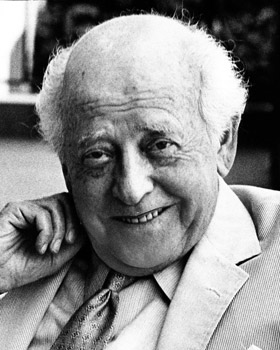
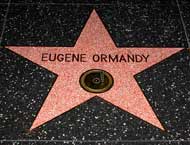
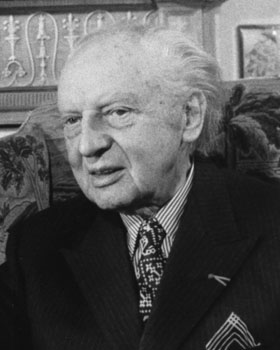
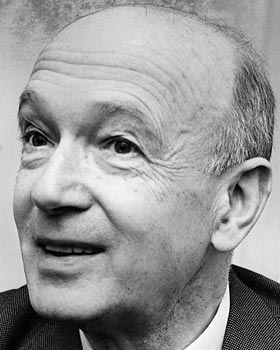
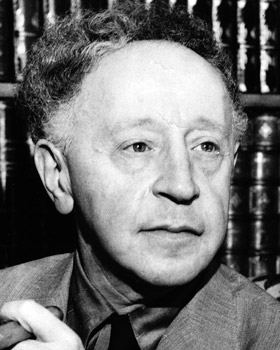
Share a thought about Eugene Ormandy